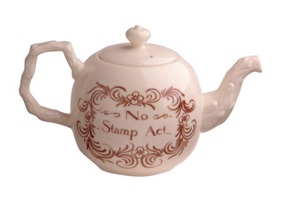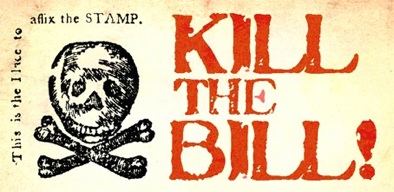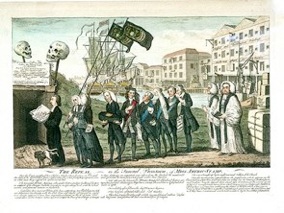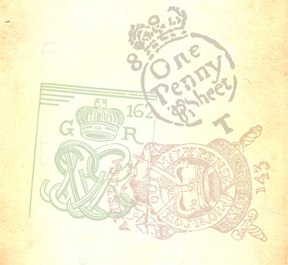by Dan Shippey &
Michael Burns
What do you do when the Government isn’t listening? When the Government is moving with great speed to pass laws that are unconstitutional and threaten personal liberty? In 1765, Americans protested, rioted and broke out the tar and feathers.
The British Parliament announced the Stamp Act in March of 1765. American Colonists were informed that they would be paying taxes on a variety of items that they used regularly in order to pay for the deployment of British soldiers they didn’t want. This was all roughly like City Hall calling to inform you that they are sending over an Officer who will be living in your house and (by the way) you will be billed for these services. The Stamp Act went on to expand the jurisdiction of already unpopular Admiralty Courts, which denied the colonists their right to a trial by a jury of their peers. To the great shock of England this did not go over well in America.
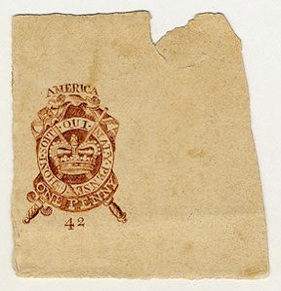
The taxes themselves were to be imposed on newspapers, legal documents, licenses, playing cards, dice and pamphlets. These were very convenient taxes for a Parliament that felt that America had too many lawyers, too much free press, and too much untaxed business going on. For American subjects the taxes were offensive, because each colony held a charter with the British Government stating that they would regulate and tax themselves under their own local governments. It was further understood that constitutionally no subject could be taxed by a Parliament in which they had no representation. The loss of jury trial rights was the final straw.
